AMIT SHARMA’S debut play as artistic director at the Kiln Theatre, Pins and Needles, draws inspiration from the Covid pandemic to look at people’s complex relationship with vaccines.
Actor Gavi Singh Chera plays Rob, a playwright trying to construct a play about the history and effects of vaccines – including for Covid – through a series of interviews.
For research, he speaks to Mary, a mother trying to make the best decisions for her family, Toby, an angry son who distrusts institutions, and Edward Jenner, the father of modern vaccinations. The more Rob listens, the more he struggles to be objective, which begs the question – how do you know who to trust?
“Rob interviews three people who have all been affected by viruses – one by smallpox, one by MMR and the other by Covid,” Chera told Eastern Eye.
“He talks to each one about their experiences with the viruses and their relationship with the vaccinne.”
The interviews will be the basis of a verbatim play Rob is working on, a form of documentary theatre based on the spoken words of real people.
Chera previoulsy acted in a verbatim production in the critically-acclaimed, Our Generation, at the National Theatre and the Chichester Festival theatre in 2022.
“Verbatim theatre is when you interview people and what they say becomes the play,” said Chera. “I prepared for this role by meeting the playwright (for Our Generation), Alecky Blythe, and asking her how to do interviews for a verbatim play.”
Pins and Needles explores truth, lies, and misinformation surrounding vaccines. The thought-provoking production invites audiences to explore the politics and human stories behind one of today’s most contentious issues.
Gavi Singh CheraIt’s described as a play about opinions, and whether one can trust what they are told. Asked if the idea of the play was conceived on the back of the Covid pandemic, Chera said: “Yeah, absolutely, it definitely deals with Covid and addresses some people’s scepticism around whether we should trust people in positions of power who are advocating for them.”
He added: “It’s also about some of the misinforamtion about vaccines. There’s been diseases over the years that vaccines have been made for and there have been myths that these vaccines can lead to other problems, such as MMR leading to autism. But years later, after more research, we find that’s not the case at all.
“People who said that vaccines would lead to getting a different illness did that because they may have patented a similar vaccine. The play looks at how money and power impacts what people are pushing to be true.” Chera said the pandemic left some people even more distrustful of the information they receive from those in positions of power.
He pointed to the ‘partygate’ scandal where members of the then Conservative government broke lockdown rules to host gatherings at Downing Street and other government buildings.
“I think people are more sceptical (of politicians). People have always been distrustful of politicians. To be honest, I am surprised people aren’t more distrusting of politicians,” Chera said.
Another sources of information the play looks at is the internet and the explosion of fake news.
One character gets all his information from online sources without knowing if it is accurate. “The play directly deals with how do you fact check if you’re not a scientist – if you’re not investing loads of time to study the work of experts in this field,” he said.
“ Social media is such a great example how echo chambers and algorithms feed you the information you want to see or have been seeing, so it’s quite hard to get a rounded view of an issue.
“The play definitely explores the impact of getting all your information online.” One character in Pins and Needles gets his information from the Lancet, a respected medical journal. However, the information later turns out to be incorrect. Chera said this aspect shows it’s imperative that medical professionals are open and honest with the public.
“You can see from the cases of people getting myocarditis and pericarditis, as a result of the vaccine, that people were right to ask questions about how the vaccine was made so quickly. This is one of the questions my character asks in the play,” said Chera.
For the actor, the play has a personal element to it, he lost a couple members of his family to Covid.
“I don’t think the play is trying to give a moral response. It’s looking at vaccines and everything we’ve lived through and asking people to be open to their minds being changed and left to query who to trust, how to trust, which will hopefully be to their own benefit,” he said.
While Chera stars on stage at the Kiln in north London, he can also currently be seen on the small screen in the second season of Amazon’s production of JRR Tolkien’s epic, The Lord of the Rings: The Rings of Power.
A still from The Lord of the Rings: The Rings of Power“It’s very surreal, to be honest. I loved Peter Jackson’s movies as a kid. My parents took me to see the last one on three different occasions,” said Chera.
“If somebody had told me as a kid that I’d be a part of this series, I would never have believed them. It’s extra special because it’s something both my parents and the rest of my family love.” In Amazon’s The Rings of Power, Chera plays a hobbit called Merrimac.
He reflects on the progress south Asian actors have made in the fact that he can play a hobbit as well as the character of Rob in Pins and Needles – both of which are examples of colour-blind casting. “That’s special and Riz Ahmed spoke very eloquently about this (colour blind casting),” he said.
“I love playing people who are south Asian. I love diving into and not hiding who I am and my culture or other south Asian people’s culture. But equally, it’s lovely to just play a part and from a more social, deeper meaning – to be cast based on what you can bring to a role, rather than what the colour of your skin is.”
Pins and Needles is at the Kiln Theatre from next Thursday (19) until October 26.
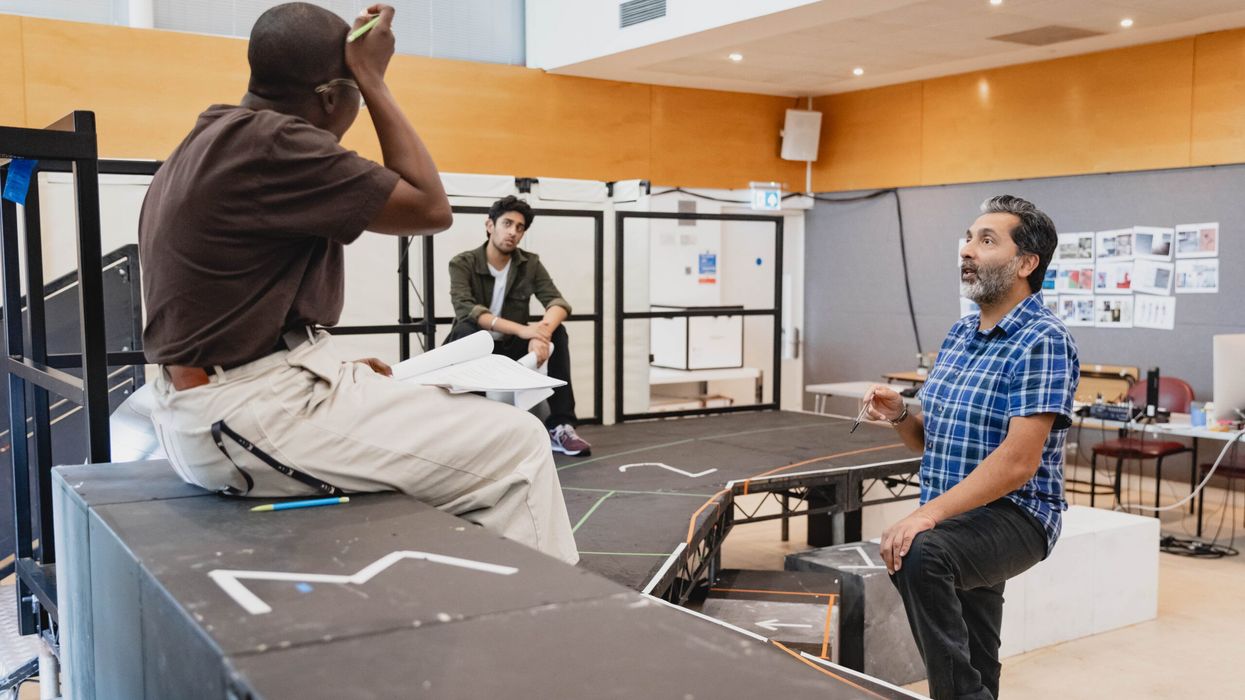




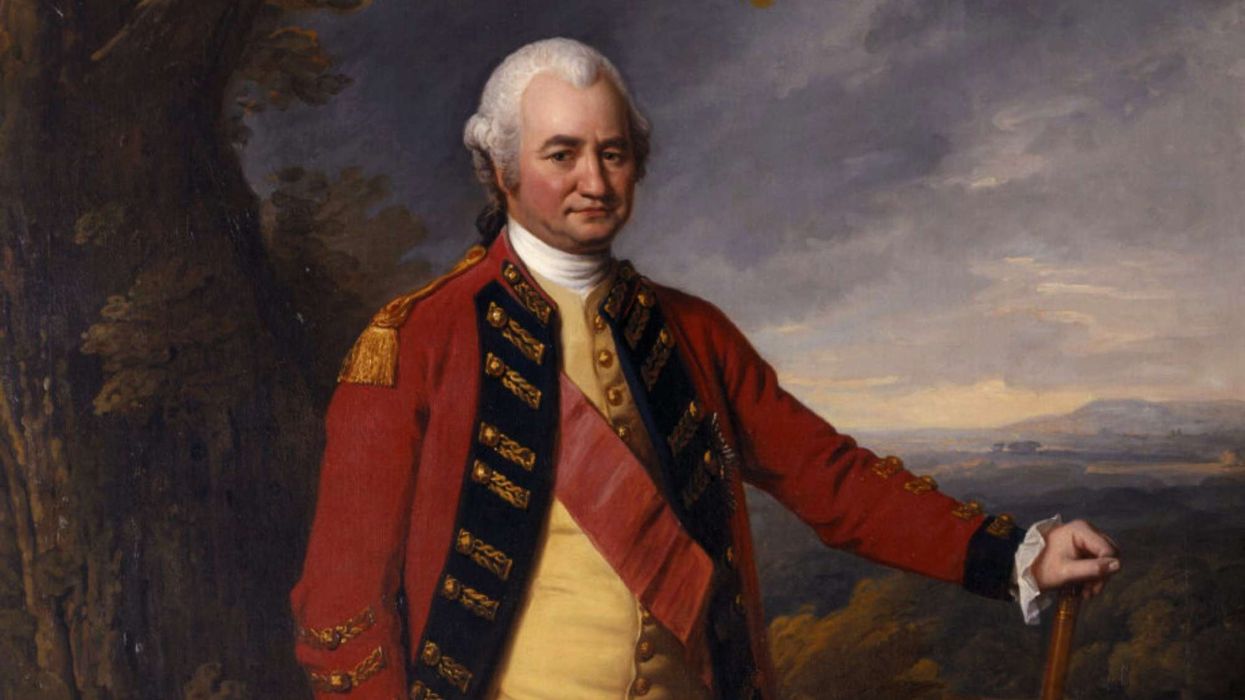
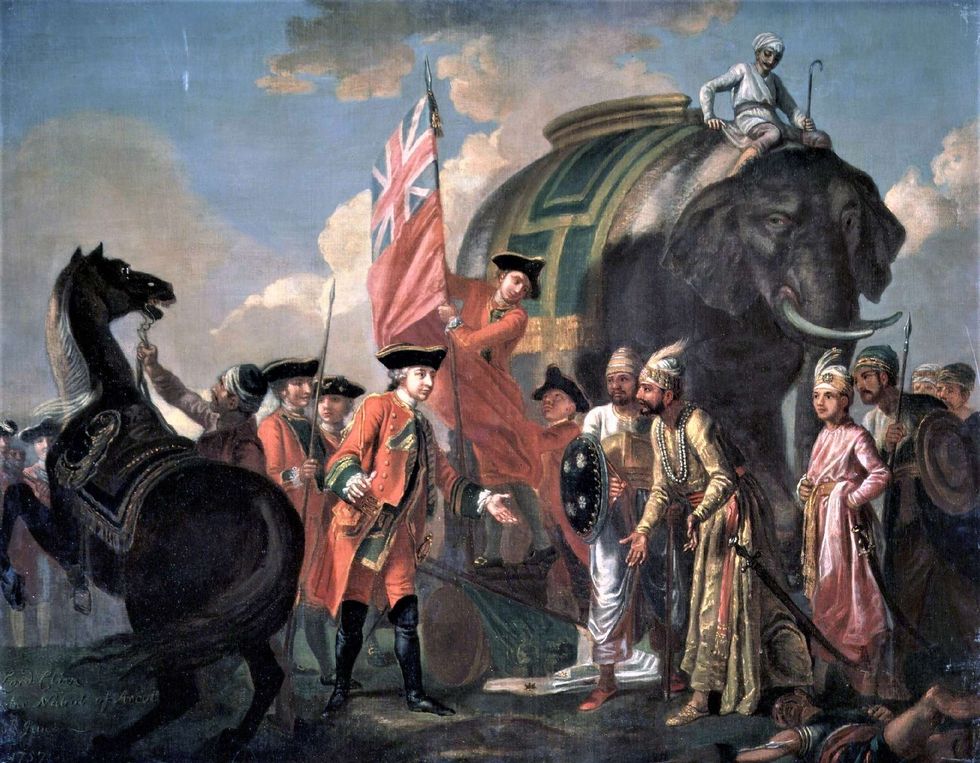 Clive meeting Mir Jafar after the Battle of Plassey 1757
Clive meeting Mir Jafar after the Battle of Plassey 1757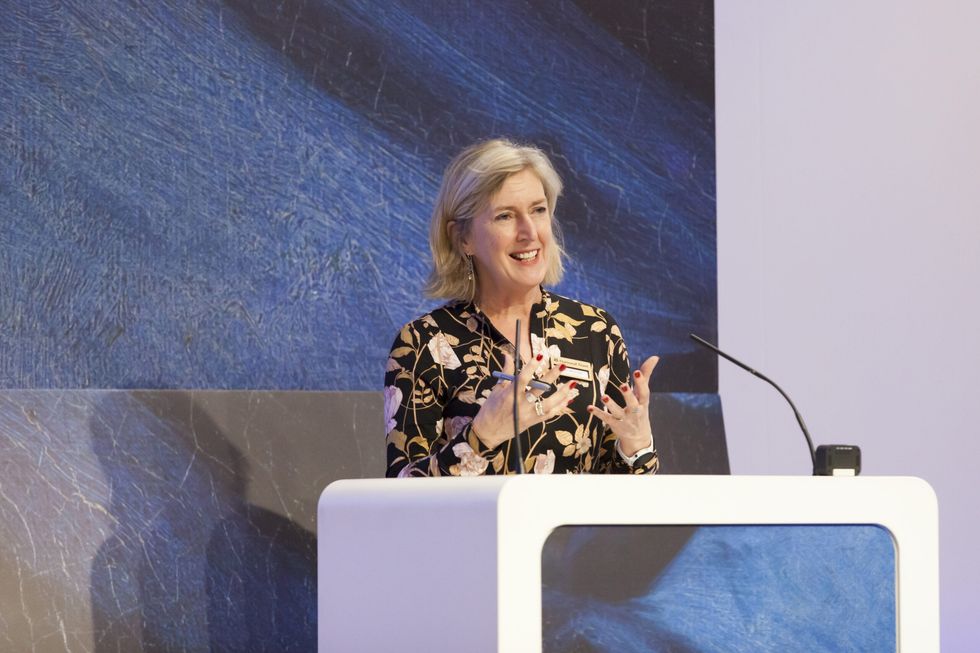 National Trust director general Hilary McGrady
National Trust director general Hilary McGrady 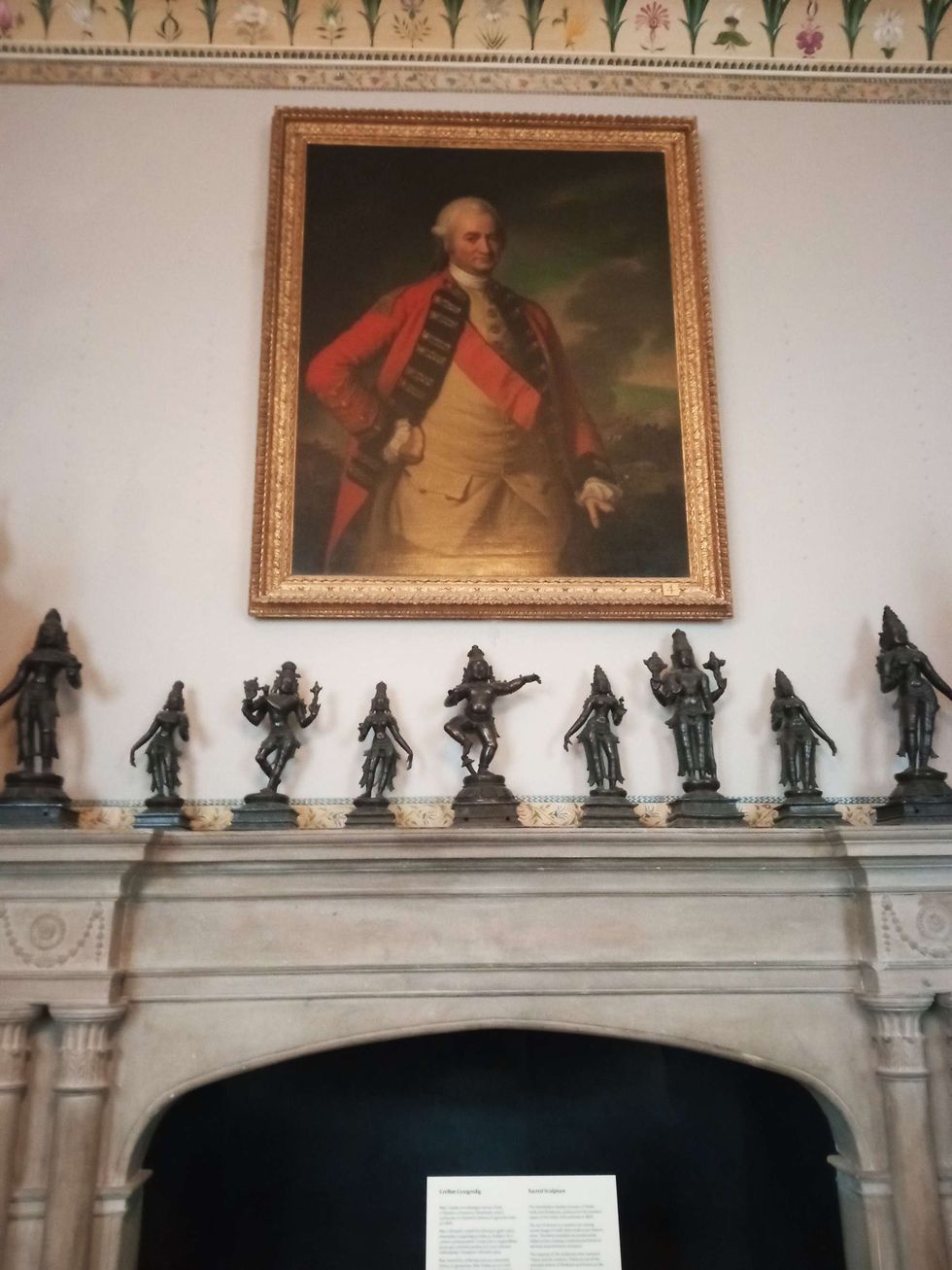 Powis Castle photo of four Clive dominates Hindu Gods
Powis Castle photo of four Clive dominates Hindu Gods 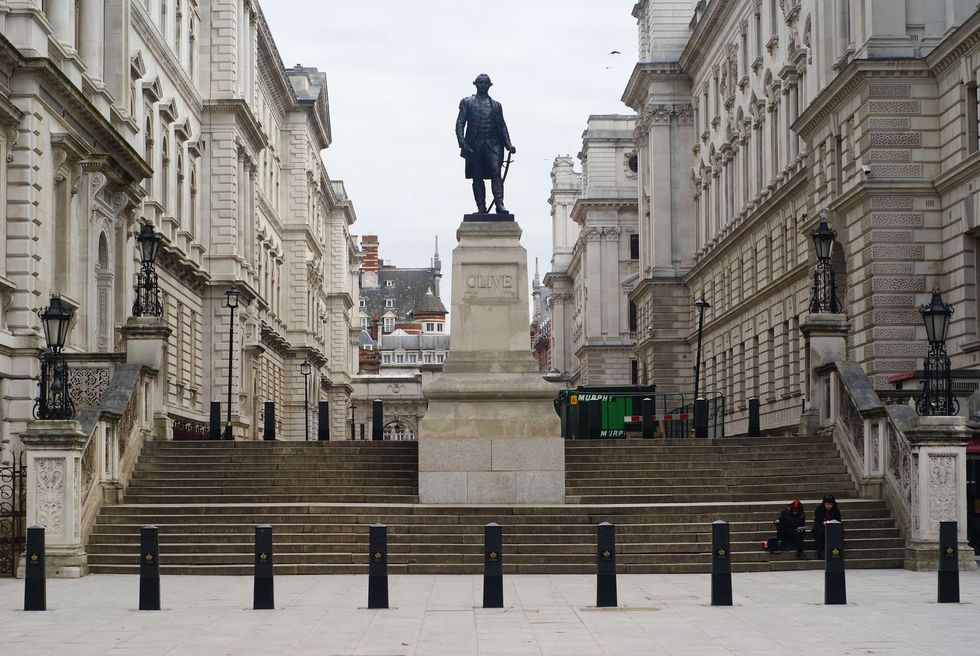 Clive of India at Foreign Office entrance
Clive of India at Foreign Office entrance 





